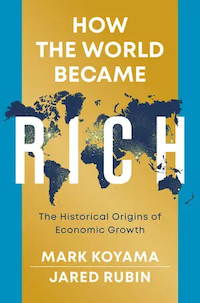Public ideas
George Monbiot on capitalism
The Australia Institute has held a webinar with George Monbiot on neoliberalism, nature and negative consequences.
In this one-hour session Monbiot takes us throughout a deconstruction of neoliberalism and capitalism, leading to his vision of a society in which there is “private sufficiency and public luxury”. The path to realizing that ideal involves a population that’s more informed and more politically active than is the present case in democracies.
He sees a fundamental conflict between democracy and capitalism. He does not dismiss the role of markets, but he makes a basic distinction between capitalism and commerce. Capitalism, by its very nature, is expansive, and seeks to commodify everything in its reach, including nature and people. It is fundamentally exploitative, and when it has profited from the exploitation of a particular workforce or region, it moves on, leaving behind a trail of wreckage.
Along the way he explains his concept of the “pollution paradox”: the greater harm a particular industry does to society, the more incentive it has to exercise political power to suppress opposition. In that context the Australia Institute was most concerned with the strength of the fossil fuel industry, but other destructive industries exerting disproportionate political pressure come to mind, including tobacco, gambling, the finance sector, and private health insurance.

He is particularly critical of the use of carbon offsets as a market mechanism to reduce greenhouse gas emissions. His criticism involves credible scientific explanations why carbon sequestration provides only very short-term suppression of emissions.
He explains his ideas clearly. We don’t know how it went down with his Australian audience, because as is depressingly typical for such sessions, the Australia Institute chair allowed virtually no time for audience participation.
His idea of “private sufficiency” has echoes of 1940s British socialism, which saw virtue in dingy housing and poor plumbing, and which gave democratic socialism a bad name. But his ideas, up to that point, are well worth considering.
His most recent book, authored in association with Peter Hutchinson, is The invisible doctrine: the secret history of neoliberalism.
The search for political leadership
Martyn Goddard on his Policy Post offers an explanation for the shortage of political leadership: The Peter Principle and the Dark Triad: why we have such lousy leaders.
The Peter Principle is a theory that people in a hierarchical organization tend to rise to their level of incompetence. Having excelled at a series of levels, people are eventually promoted beyond their level of competence. And worse, having achieved that level, they tend to over-estimate their competence. Goddard illustrates this principle in relation to recent prime ministers, who performed well in their roles before they reached the top job, where they failed.
“The Dark Triad” is a term used to describe three dysfunctional behaviours that are over-represented among those who achieve high political office. These are psychopathy, Machiavellianism and narcissism. “All three conditions are marked by an absence of normal human warmth and empathy. Other people exist only to be used and exploited”, Goddard writes. These qualities are personal assets in the quest for high office, but they dissuade people with more positive characteristics from seeking high office.
Goddard adds evidence to this generalization with a description of how factions work in our political system. It isn’t pretty.
He has entered territory where there is a great deal of competing theory, much of which intersects with his classifications. The psychologist David McClelland distinguished between those who seek high office as a means to achieve something, and those who seek high office as an end in itself. (Women tend to be in the former category.)
Richard Neustadt, in his studies of US presidents, wrote that many people found that the transition to that high office took them into another, unfamiliar space, where every aspect of their lives was governed by rules and conventions that hadn’t applied in their previous roles, and that they became cut off from the milieu in which they had previously thrived.
In a perverse way this is disempowering. Presidents and prime ministers are surrounded by a praetorian guard of political advisors and media staff whose job is to protect their boss from the outside world and to boost his or her confidence. That’s an alternative explanation to the Peter Principle, and it explains why political downfalls take the president or prime minister by surprise, even if voters aren’t surprised.
Maybe it is futile to seek to find leadership among people who hold offices of high authority. Ronald Heifetz, Harvard’s Professor of Political Leadership, points out that positions of authority tend to be burdened with liabilities that inhibit the exercise of political leadership. Leadership, which he defines as the work of mobilizing the resources of a people to make progress on difficult problems involving adaptive change, is often exercised most effectively by people who don’t have a position of formal authority. People who command respect in the community, such as retired prime ministers or prominent academics, can raise difficult issues, such as the disruptions we have to experience to deal with climate change, in ways that incumbent prime ministers and presidents cannot.
That is not to say that those who occupy positions of high formal authority are powerless. They have control of resources that must be deployed to deal with hard issues. But we shouldn’t expect that they will take the lead in raising difficult issues.
Leadership and authority are different, but they can work together.
How the world became rich
Joe Walker’s Weekend reading & selected links has a review, by Jason Furman, of Mark Koyama and Jared Rubin’s book How the world became rich: the historical origins of economic growth.

It’s an explanation of how and why, about 200 years ago, per-capita GDP started to grow, initially in Britain, and then in the rest of the world.
Koyama and Rubin aren’t content with theories that put this expansion down to one cause, be that steam engines or an expansion of the productivity of capital. These general models generally consider factors such as technology to be “exogenous”, a word economists use to describe stuff that they don’t quite understand and that they cannot fit in the equations describing their models.
Rather, they look at a whole group of possible contributing factors, which help explain not only world economic growth, but also why economic growth has been so different in different countries and has often been subject to reversals. These factors include geography, institutions, culture, demography and colonization.
Stimulated by these ideas, Furman throws another possible factor into the ring – the codification of technical terms, that eased the communication of scientific and technological ideas.